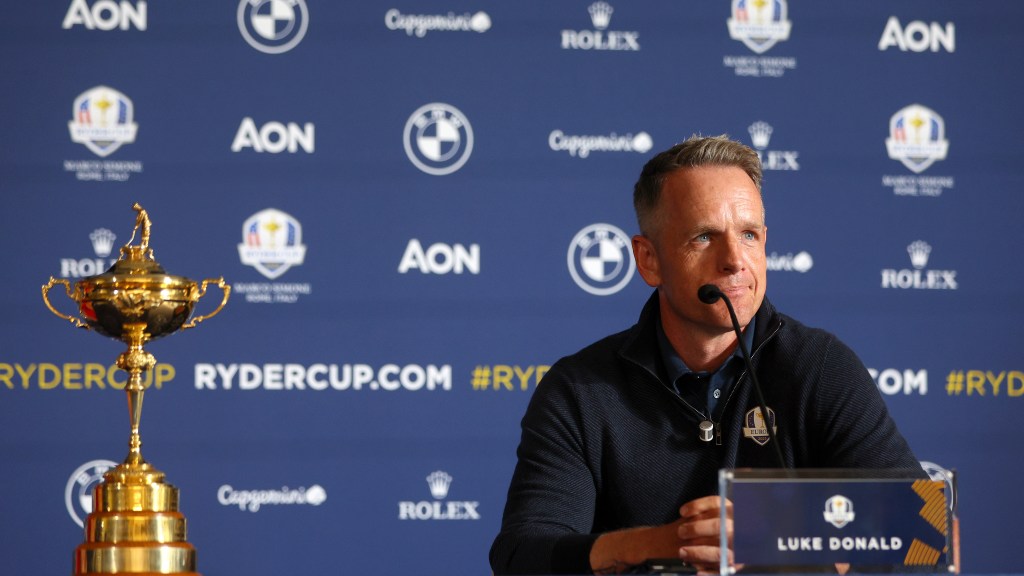It was a European — the French writer Alexis de Tocqueville — who first advanced the idea of American exceptionalism, a strand of political theory that, despite much evidence to the contrary, has become accepted as conventional wisdom in the Ryder Cup.
An insistence on America’s preeminence in the biennial contest has merit, but only if you scroll back far enough. The original Great Britain & Ireland team had just three wins in the first 57 years of the Cup, but the subsequent European team has authored a reversal. The last 18 contests have seen 11 wins for Europe versus six for the U.S., with one tie that saw Europe retain the hardware. Seven of the last 10 have gone to the Old World, whose last loss on home soil was in 1993. Still, every two years America is declared a prohibitive favorite.
It’s a proclamation often based on the strength of individuals, not on the collective utility of a team. But this Ryder Cup promised to be different. The U.S. team that easily won the ’22 Presidents Cup gelled seamlessly, thanks in part to LIV Golf relieving them of toxic personalities (Patrick Reed) and childish distractions (Bryson v Brooks). But we’ve heard feverish anticipation of a new era of American dominance before, and it hasn’t materialized. Like in the aftermath of the ’08 win under Paul Azinger, or when Davis Love III skippered the team to its first post-task force victory in 2016. Both “streaks” ended at one.
The narrative ahead of the ’23 Cup is that Europe has been weakened by not only LIV but the aging out of dependable veterans. Except those players are one in the same. LIV took from Europe a slate of future captains (at least for now, future deals pending), not current players. It hastened a generational change that was inevitable, but the traditional components of team Europe are unchanged.
There’s always been a core group of anchor stars of whom much is asked. In the ’80s and ’90s, that meant Ballesteros, Faldo, Woosnam, Montgomerie, Langer. Later it was Garcia, Westwood, Poulter, Rose, McIlroy. Then there’s a solid “B” tier of players capable of holding their own — the Sam Torrances and Paul Caseys. Finally, the rookies and vagabond journeymen who unexpectedly qualify. From that unheralded contingent, career-defining moments have emerged: Eamonn Darcy beating Ben Crenshaw in singles back in 1987; Paul McGinley holing the winning putt in ’02, the same year Phillip Price took down Philip Mickelson in singles;…
..
Click Here to Read the Full Original Article at Golfweek…
